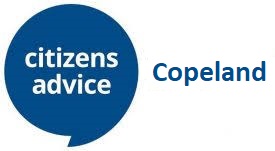Money Confidence
Select advice topic

If you owe money and you’re struggling to pay it back, there are actions you can take.
Making a list of your debts
Collect together all the information about your debts, such as contracts, bills and statements. Your debts might for example include:
- rent arrears
- credit card debts
- council tax arrears
- energy or water bills
- money you’ve borrowed from friends or family
Make a list of your debts and write down the details of each debt. These details might include:
- who you owe the money to – this is your ‘creditor’
- when you first missed a payment
- how much you owe – this might be in a recent statement
- your account or reference number – this might be at the top of your statement
- what the creditor has done to get the money back – for example, sending you letters or taking you to court
Try not to worry when you see all your debts written down – the important thing is that you’re sorting them out.
Check if you have to pay a debt
You’ll be responsible for a debt if it’s something that the law says you have to pay, like council tax or water charges.
You’ll also probably have to pay a debt if you’ve signed a contract to say you agree to give money to someone. This could be something like a:
- credit agreement, for example if you’ve bought a washing machine or taken out a credit card
- tenancy agreement, if you rent
If you’re responsible for a debt it’s called ‘being liable’. It means you’ll have a legal duty to pay it. If you’re not liable you should be able to challenge the creditor. A creditor is any person or organisation you owe money to.

Debts you’re not responsible for
You might not have to pay a debt if:
- it’s been six years or more since you made a payment or were in contact with the creditor
- there was a problem when you signed the agreement, for example if you were pressured into signing it or the agreement wasn’t clear
- the creditor didn’t check properly that you could afford the repayments when you signed the agreement
If you were an additional cardholder
If you were an authorised additional cardholder on someone else’s credit card account, for example a spouse or partner, the credit card company can’t ask you to repay any debts on the card. These are always the responsibility of the main cardholder.
Check if your debt is covered by Payment Protection Insurance
If you have a mortgage, loan or credit debt, you might have Payment Protection Insurance (PPI). If you do, the insurance company might cover your debt repayments if you fall ill, become unemployed or have an accident. Check your credit agreement or mortgage.
Check if the time limit on a debt has passed
For most debts, if you’re liable your creditor has to take action against you within a certain time limit. Taking action means they send you court papers telling you they’re going to take you to court. The time limit is sometimes called the limitation period.
For most debts, the time limit is 6 years since you last wrote to them or made a payment.
The time limit is longer for mortgage debts. If your home is repossessed and you still owe money on your mortgage, the time limit is 6 years for the interest on the mortgage and 12 years on the main amount.
Credit reports
It’s a good idea to get copies of your credit reports to check you’ve got the right details for all your debts.
A credit report is a document that shows you everything about your credit including who you’ve borrowed from, how much you’ve borrowed and paid back, if you’ve missed any payments and some of your personal details such as your address and who you bank with.
You can get free copies of your credit reports from the 3 most popular credit reference agencies (CRA) – Experian, Equifax and TransUnion (formerly Callcredit). Ask for the ‘statutory report’. It’s worth getting reports from all 3 agencies as they sometimes hold different information about you.
Your credit reports might not have details of all your debts, so you should also look at the information your creditors have sent you. Credit reports don’t normally show changes in the last 4 to 6 weeks. They also won’t show if you have:
- council tax arrears
- unpaid income tax
- benefit overpayments
- money you owe to family and friends
- money you owe to tradespeople, like builders or solicitors
Get help with your debts
National Debtline provides free information and advice to people living in England, Wales and Scotland. It also provides an information pack on dealing with debt.
Telephone: 0808 808 4000 or webchat with an adviser
Monday to Friday, 9am to 9pm and on Saturday, 9.30am to 1pm
StepChange Debt Charity offers free, confidential advice and support to anyone who is worried about debt. They can also set up plans to help you pay off your debts within a reasonable timeframe if that is the best option for you.
Telephone: 0800 138 1111 or webchat with an adviser
Monday to Friday, 8am to 8 pm and Saturday 9am to 2pm (webchat 9am to 2pm)
PayPlan offers free debt advice and solutions to clients. They can also set up plans to help you pay off your debts within a reasonable timeframe if that is the best option for you
Telephone: 0800 716 239 or web chat with an adviser
Monday to Friday, 8am to 8pm and on Saturday 9am to 3pm

